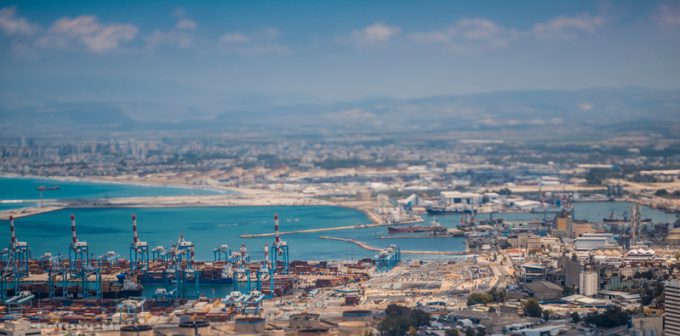Real test of Gemini hub and spoke model yet to come, says Maersk
Early signs may be positive for the Gemini Cooperation’s “hub and spoke” model, but head ...

Maersk has followed Zim and Hapag-Lloyd in introducing an emergency risk surcharge (ERS) for cargo discharged at Israeli ports, amid the conflict in Gaza.
Last week, it announced: “Additional insurance has enabled us to keep operations moving as steadily as possible and secure capacity in the market for our customers over the final three months of the year.
“Moving into 2024, insurance premiums continue to be raised for vessels bound for Israel, which has brought about the need for Maersk to officially ...
Trump tariffs see hundreds of cancelled container bookings a day from Asia
Macron calls for ‘suspension’ – CMA CGM's $20bn US investment in doubt
De minimis exemption on shipments from China to the US will end in May
Forwarders stay cool as US 'liberation day' tariffs threaten 'global trade war'
Mixed response in US to 'Liberation Day', while China leads wave of retaliation
Tariffs and de minimis set air freight rates on a volatile course
Overcapacity looms for ocean trades – with more blanked sailings inevitable
'To ship or not to ship', the question for US importers amid tariff uncertainty
List of blanked transpac sailings grows as trade war heats up and demand cools
East-west rates diverge as transpac spots hold while Asia-Europe keeps falling
'Chaos after chaos' coming from de minimis changes and more tariffs

Comment on this article